Antiplatelet Medication List – Common Drugs, Uses & Safety Guide
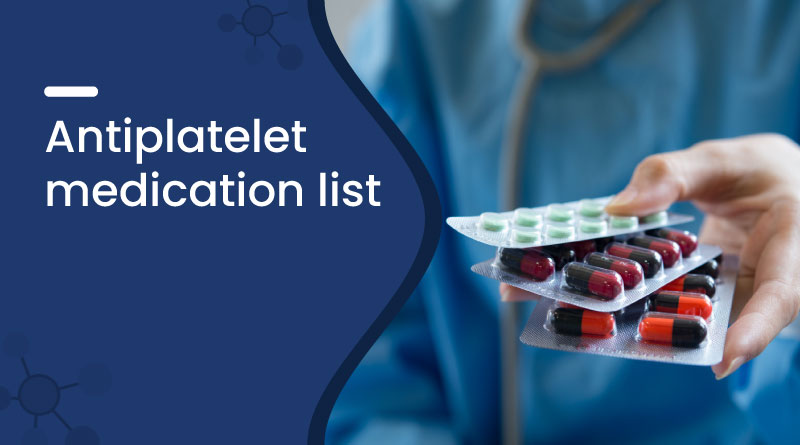

Antiplatelet medicines play a vital role in preventing clots by keeping platelets from clumping. They are widely used in the management of cardiovascular conditions such as heart attacks, strokes, and peripheral artery disease. These medications can significantly reduce the risk of serious complications and improve overall heart health. Understanding the types, uses, side effects, and precautions of antiplatelet drugs can help patients take them safely and effectively.
What Are Antiplatelets?
Antiplatelets are medicines that block platelet aggregation, thereby reducing clot formation in the blood. Unlike anticoagulants, which thin the blood, antiplatelets specifically target platelet function, making them crucial in preventing arterial clots that can cause heart attacks or strokes.
Uses and Benefits of Antiplatelets
- Prevent Heart Attacks and Strokes: Reduce the risk of clot formation in arteries.
- Manage Cardiovascular Diseases: Help in conditions like coronary artery disease and peripheral artery disease.
- Post-Surgical Protection: Often prescribed after procedures like angioplasty or stent placement to maintain blood flow.
- Long-Term Prevention: Provide ongoing protection for patients with a history of heart or vascular problems.
How Do Antiplatelets Work?
Antiplatelet drugs function by disrupting the process that allows platelets to clump together. Platelets are small blood cells that stick together to form clots. By blocking specific pathways, antiplatelets reduce the ability of platelets to clump, thereby preventing the formation of dangerous clots in the arteries.
Common Types of Antiplatelet Medications Based on Mechanism
1. Cyclooxygenase (COX) Inhibitors
COX inhibitors are a class of drugs that reduce inflammation and pain by blocking the cyclooxygenase (COX) enzymes. These enzymes produce prostaglandins, which are lipid compounds that mediate inflammation, pain, and fever.
Example: Aspirin (Acetylsalicylic acid)
2. ADP Receptor Inhibitors (P2Y12 Inhibitors)
P2Y12 inhibitors are antiplatelet medications that block the P2Y12 receptor on platelets. Normally, adenosine diphosphate (ADP) activates this receptor, triggering platelet aggregation and clot formation. By inhibiting this process, these drugs effectively reduce the risk of dangerous blood clots.
Examples include:
3. Glycoprotein IIb/IIIa Receptor Inhibitors
GP IIb/IIIa receptor inhibitors are powerful antiplatelet drugs that block receptors on platelet surfaces. These receptors bind fibrinogen to link platelets together. By blocking this step, the drugs prevent platelet aggregation and significantly lower the risk of harmful blood clots.
Examples include:
Antiplatelet Medications List
| Medicines | Key Features |
|---|---|
| Aspirin (Acetylsalicylic acid) | Irreversibly inhibits COX-1 in platelets, reducing thromboxane A2 and preventing clot formation. |
| Clopidogrel | An oral prodrug that irreversibly inhibits the P2Y12 receptor, reducing platelet aggregation and lowering the risk of heart attack and stroke. |
| Ticagrelor | Reversibly blocks the platelet P2Y12 receptor, preventing ADP-mediated aggregation and reducing clot risk. |
| Prasugrel | A prodrug that irreversibly blocks platelet P2Y₁₂ receptors, reducing clot formation. |
| Ticlopidine | Irreversibly blocks platelet P2Y12 receptors, preventing ADP-induced aggregation and reducing stroke and clot risk. |
| Abciximab | An irreversible GP IIb/IIIa receptor inhibitor in platelet cells, delivered as a monoclonal antibody, to block aggregation. |
| Eptifibatide | An intravenous GP IIb/IIIa inhibitor that reversibly prevents platelet aggregation, reducing heart attack risk. |
| Tirofiban | Intravenous GP IIb/IIIa inhibitor with reversible action that reduces platelet clumping and clot risk. |
Possible Side Effects of Antiplatelets
- Increased risk of bruising or bleeding
- Gastrointestinal issues like nausea, stomach pain, or ulcers
- Rare reactions such as allergic responses or liver enzyme changes
- Prolonged bleeding time after cuts or surgery
Who Should Avoid Antiplatelets?
- Individuals with active bleeding disorders
- Patients with a history of hemorrhagic stroke
- Those with severe liver or kidney disease
- People with allergies to aspirin or other antiplatelet agents
Precautions to Follow While Taking Antiplatelets
- Always follow the prescribed dosage and avoid missing any doses.
- Inform your doctor before any surgery or dental procedure.
- Avoid combining with other blood-thinning medications without medical advice.
- Monitor for unusual bleeding or bruising and report to your healthcare provider.
- Combine your treatment with exercise, a nutritious diet, and quitting smoking for better outcomes.
Conclusion
Antiplatelet drugs play a vital role in reducing the risk of clots, strokes, and heart attacks. By understanding their uses, benefits, side effects, and precautions, patients can manage cardiovascular risks effectively. Always consult a healthcare professional before starting or stopping any antiplatelet therapy to ensure safe and optimal results.
Frequently Asked Questions (FAQs)
Q. What are antiplatelet medications used for?
A. Antiplatelet medications are used to prevent blood clots, reduce the risk of heart attacks and strokes, and protect patients with cardiovascular conditions like coronary artery disease and peripheral artery disease.
Q. What is the difference between antiplatelets and anticoagulants?
A. Antiplatelets stop platelets from sticking together, mainly preventing arterial clots, while anticoagulants thin the blood to stop clot formation in veins and arteries, preventing deep vein thrombosis or pulmonary embolism.
Q. What are the most common antiplatelet drugs?
A. The most frequently used antiplatelet medicines are aspirin, clopidogrel, prasugrel, ticagrelor, and dipyridamole. These medications help reduce clot formation and lower the risk of cardiovascular events like stroke or heart attack.
Q. Why is aspirin called an antiplatelet?
A. Aspirin is called an antiplatelet because it blocks the cyclooxygenase (COX) enzyme, reducing thromboxane A2 production, which prevents platelets from clumping together and forming harmful blood clots.
Q. What foods should I avoid on antiplatelets?
A. When taking antiplatelets, avoid excessive alcohol, grapefruit, cranberry products, and high-dose garlic or ginger, as they may increase bleeding risk or interact with the medication’s effectiveness. Always consult your doctor.
Clopidogrel (75mg)
Aspirin (75mg) + Clopidogrel (75mg)
Aspirin (Acetylsalicylic Acid) Gastro Re...
Aspirin (150mg) + Clopidogrel (75mg)
Rosuvastatin (10 mg) + Aspirin (75 mg) +...
Rosuvastatin (20 mg) + Aspirin (75 mg) +...
Ticagrelor (90 mg)
Rosuvastatin (10mg) + Clopidogrel (75mg)

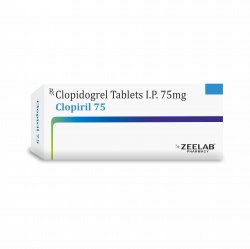
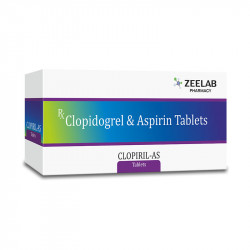
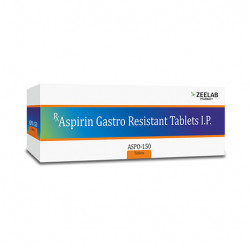
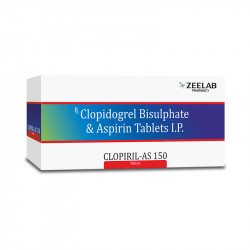
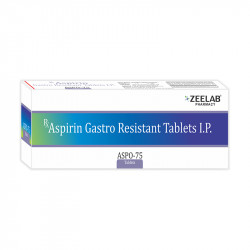
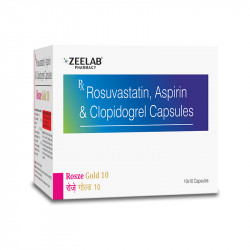
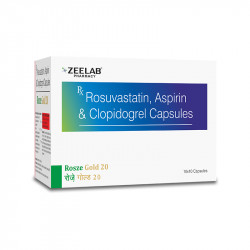
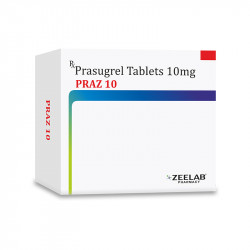
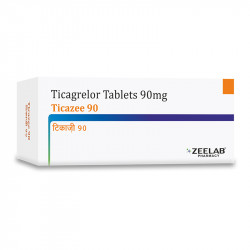
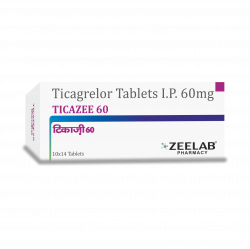
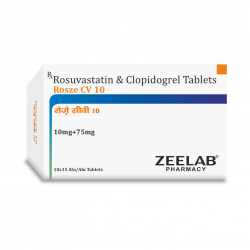







 Added!
Added!